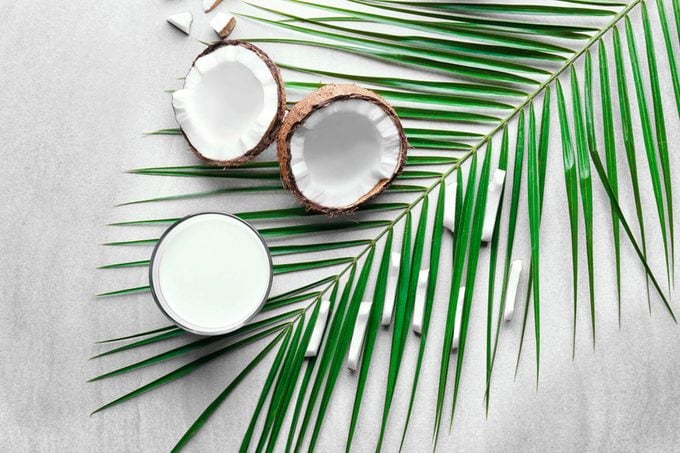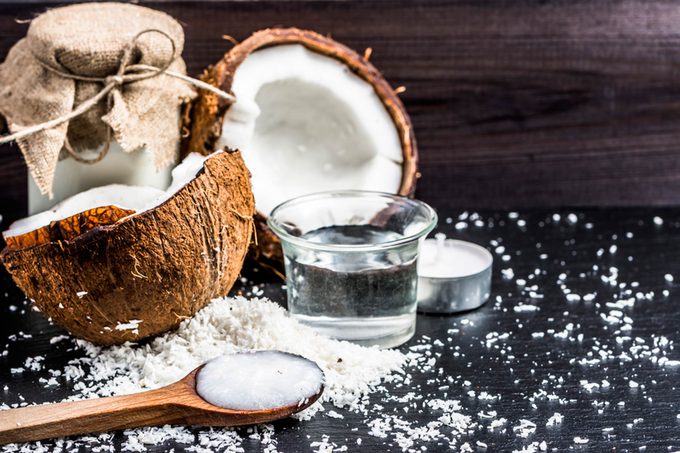This Just In: Coconut Vinegar Is the New Apple Cider Vinegar
Updated: Oct. 02, 2019

Don't stock up until you read this first.
By now you’re probably storing a bottle of apple cider vinegar in your pantry and your medicine cabinet so that you can use the natural cure-all as part of your diet and beauty routine. But did you know that there may be another vinegar that’s just as beneficial as your beloved apple cider vinegar? Meet coconut vinegar, its hipper cousin.

A popular acidic condiment in Southeast Asia and some regions of India, coconut vinegar is a natural product produced from fermentable coconut sap and the oxidation of ethanol into acetic acid. Healthwise, it has a lot going for it, according to Lynnley Huey, MPH, RD, a registered dietician and a nutritionist on Maven.
- Since it’s fermented, coconut vinegar a natural source of probiotics, which feed our microbiome—that community of gut bugs that keeps us healthy on so many levels. Here are some bonus health benefits of probiotics.
- Coconut vinegar contains acetic acid so it may not spike blood sugar, according to one small study.
- Research conducted in mice found that coconut vinegar seems to have anti-inflammatory properties that may make it a more natural way to help combat obesity and control your weight. The study is an early one, though, and the findings still need to be duplicated in humans.
When it comes to healthful living, both apple cider vinegar and coconut vinegar can live amicably on your shelf. Although there’s a lot more research about the power of apple cider vinegar to lower blood sugar levels and aid in digestion, coconut vinegar is thought to have similar benefits. Huey cautions that we’ll need more scientific evidence to prove any specific health claims, and you should always ask your doctor before using coconut vinegar as part of your health regimen, especially if you already take blood pressure-lowering medication.

As a beauty treatment, coconut vinegar works similarly to apple cider vinegar, as all vinegar types have antimicrobial and antibacterial properties. You can apply it topically, but studies haven’t shown it to be a proven or safe treatment for conditions like acne or sunburn, according to Huey. Here’s how to use apple cider vinegar or coconut vinegar as part of your regular beauty routine.
When it comes to ingesting coconut vinegar, mix it with a little mustard and oil for a salad dressing or dilute it with water and honey and drink it as a morning cleanse. (Learn how to drink apple cider vinegar). You can also check out the new line of drinking vinegars from Suja, which are premixed coconut vinegar beverages. Huey recommends keeping your intake of coconut vinegar to 1 to 2 teaspoons and up to 1 to 2 tablespoons daily, to avoid potential side effects.
If you opt to go for plain coconut vinegar, be sure to read the label carefully. For the full benefits, coconut vinegar should be created from coconut sap, rather than water. Coconut sap contains high levels of amino acids and probiotics and enzymes, whereas coconut water is diluted. Check out these 95 household uses for vinegar you never knew about.



















